How classes in agriculture and baseball may have saved 2 rural Alberta schools
Schools of excellence focused on agriculture and baseball rejuvenate, revitalize small town schools
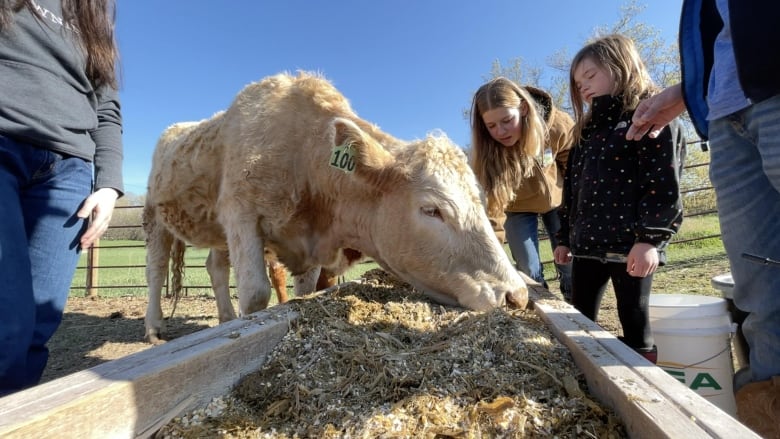
Tanika Brockmann may only be in Grade 7, but she's taken on big responsibilities at her school in Altario, Alta., nearly 400 kilometres northeast of Calgary.
She's the chicken manager at her school's agriculture academy, a farm operation behind the main buildingthat includes a new barnand several pens in what used to be an outdoor rink.
Every morning, before classes start, Brockmann isin charge of feeding about two dozen chickens, making sure they're in good health and providing them with fresh water.She also collects, washes and packagesthe eggs for sale.
Herclassmates arein charge of the other animals at the farm, which include cows, pigs, sheep and quail.
The academy is part of aprogram that's being called a school of excellence, specialized programmingthat some educational leaders believe could help save rural, remote schools from closing and even convince peopleto move nearby to raise their families.
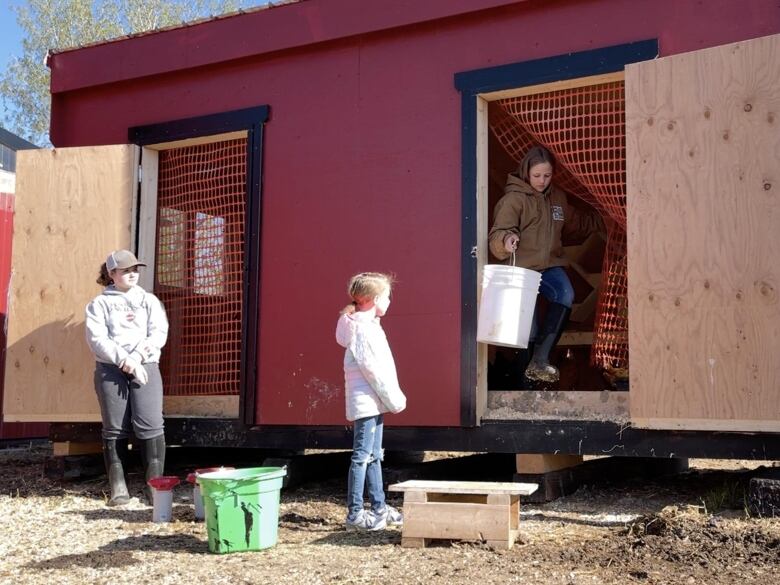
That's exactly what theschool's principal did.
Kevin Van Lagen moved there eight years ago after finishing a master's degree in education. He planned to stay for only three years, but he's become entrenched in the community. Not only has he revitalized the school in Altario, he established another school of excellence in nearby Consort with a baseball academy.
Schoolclosures in rural Alberta may be more common than you think. Since 2019, a dozen schools have been shut down.
According to Van Lagen, who calls himself the "prairie principal" on social media,the idea of closing the school in Altario had been simmering for years.
When he was hired, at the age of 32,he became the sixth principal in six years.
Staff would come and go. Students and families were leaving.
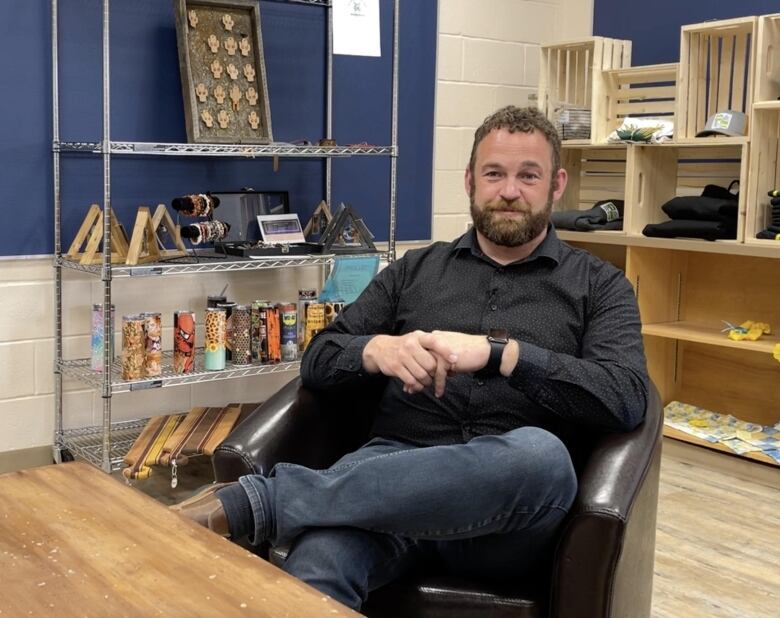
Van Lagen,now 40, says that if he saw what he was getting himself and his family into, it's unlikely he would have taken the job.
"Honestly, and I don't hide this, I think if we had toured, we probably would have said no," he said.
"Because we found out you know, what had happened in the school the previous year. It was really dry that summer. And there's grasshoppers everywhere and it's hot. And it was just like, where is everybody? You know, there was hardly any kids. And when you walked down the streets, it was just dead. Like, there was nothing."
Enrolment up
When he arrived, there were 49 students at the K-12 public school. Parents were unhappy with the amount of staff turnover and instability. A meeting was held in 2017 to turn things around.
Enrolment is now at 67, still a small number but enough of a turnaround to trigger more funding, staff and some stability.
"We talked about the future of the school and instead of talking about sustainability, we want to talk about how can we actually thrive? How can we actually be amazing, and kind of endthat simmering idea of having to close the school down?"said Van Lagen.
"Our school was just, basically,hanging together by a thread," said Anna Beier, whose family was part of the meeting to save the school and who became one of the key backers of the new academy.
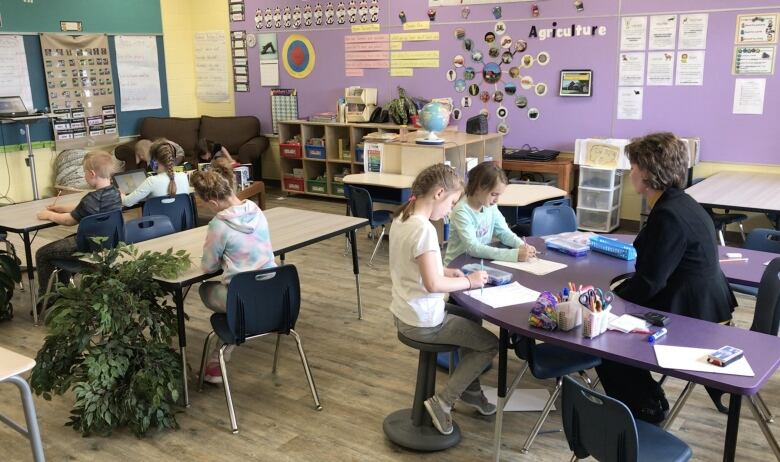
"Without this, basically, we will probably turn into a dust bowl," she said, referring to the fact that Altario has fewer than 40 people in the tiny village.
The hotel has been been closed for years, the convenience store and gas station were shuttered long ago. People in the area have totravel to other communities for food, gas and other essentials.
In Altario, the school is really the only sign of life and activity. People say it's the heartbeat of thecommunity.
"It's our matriarch of our community. Without it, we'd be lost, we'd really be lost. Our kids would be lost," she said.
A community rallies, a school is saved
It started with a single steer, then another. Soon, the chickens, sheep, quail and pigs followed. Turkeys are raised in the winter and spring. Bees are kept and honey is produced.
The animals are raised and then sold. The profits go back into the school, with some of the money set aside for scholarships.
Anna Beier's son, Morgan, graduated in 2014 before the program was brought in.
The 26-year-old has returned home after getting a diploma in agriculture management. There's a good chance he'll take over the family farm one day.
He thinks the ag academycouldconvince others todo the same.
"There's multi-generational farms out here. So it's a shame sometimes to see them go without anybody taking them over," he said.
"Farm sales are always kind of sad, when you see them around here andlosing people [from]the community."

Teacher Maggie Baier, who's been at the school for 38 years,credits Van Lagenfor his leadership.
"He has been the highlight of my career," she said from her classroom, where she teaches kindergarten to Grade 3.
"His expectations are very high. But his students come first for him, which has always been our philosophy.
"But rebuilding our community, rebuilding our school. It's been actually quite amazing to see,"
Schools of excellence
After Van Lagen was hired as the principal in Altario, he took on the same job at the school in nearby Consort, avillage with a population of 700 that is best known as the place where singer k.d. lang grew up.
The outlook in Consort was not as bleak as Altario, but enrolment was still trending downward, according to Van Lagen.
Instead of duplicating the agriculture program, he turned to baseball.
He reached out to long-time baseball coach Drew Boyer, who travelled 2 hours to see what Van Lagen was planning.
"I remember it just like it was yesterday. I said to him, this could be something special," said Boyer.
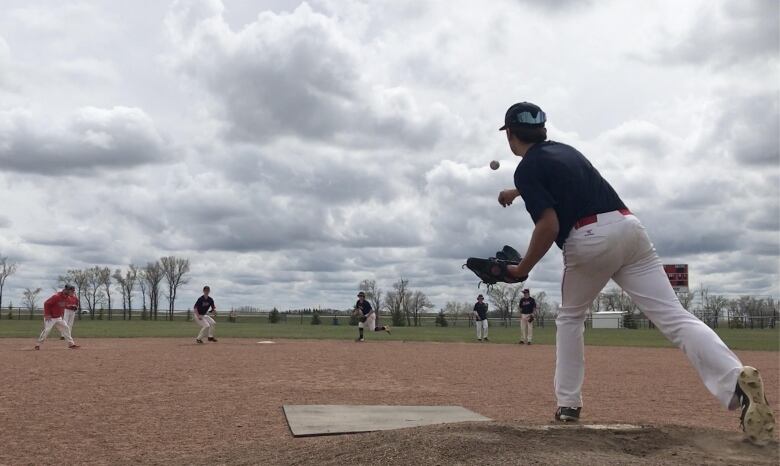
Van Lagen got the green light to convert a neglected curling rink in nearby Veteraninto a practice facility. It has artificial turf, a pitching mound, a batting area, weights and stationary bikes.
About a dozen kids moved to Consort to join the academy boosting enrolment and revenues for the school.
The team, the Wranglers, won a provincial championship in its first year. During the winter, the players train and mentor younger kids. Ithas sparkeda surge in baseball registration.
Leif Wilsonmoved to Consort from Virden, Man., to attend the academy andthe school.
The 18-year-old graduates this year and has been recruited by a U.S. college.
"I'm going toget the experience playing junior college baseball and I hope to transfer to a four-year program and continue my baseball career and hopefully make it to professional baseball," said Wilson.
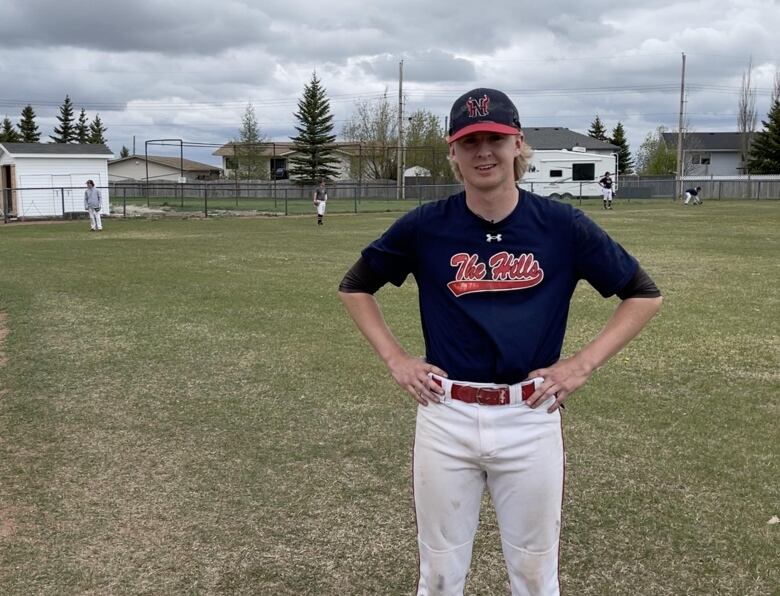
One of his Wranglers' teammates has also been recruitedstateside.
"I actually just signed to go to university in Florida next fall," said Hogan Jacobsen, a catcher and third baseman with the team.
He's seen the impact their team hashad on the community and how the game is growing.
"Kids seem to be more engaged with sports, they're more excited about everything."
Baseball registration in Consort has reached 160 kids many players travel from nearby farms and other communities, but it'san impressive number in a such a smallcommunity.
"It's just booming, every kidis wanting to get their feet into it. And it's pretty exciting for our community," said Tammy Beier,president of the Consort Minor Baseball Association.
Avoiding the 'status quo'
Van Lagen says it's that growth that drives him. He doesn't like the status quo and is always looking for ways to improve programs and opportunities for students.
His next venture is set up across the street from the school in Altario.
It's a student-led hydroponic growing operation that is expected toproduce enough vegetables to feed 150 families.
"We have spinach and kale, and romaine lettuce and butter leaf lettuce," said Haley Beier, Anna's daughter, who is about to graduate.
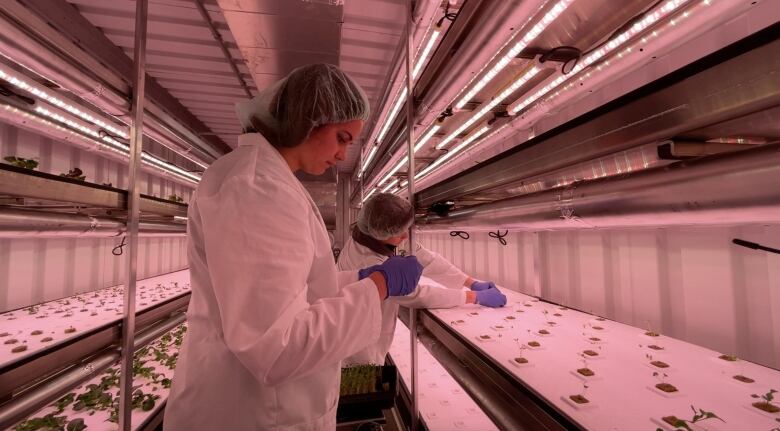
The $300,000 project received funding fromlocal and federal grants, the agriculture society and the Prairie Land School Division. It's astrong endorsement for what Van Lagen and his team are doing. Even though he's had his detractors.
"I've been told that myself, actually, you're wasting your time, because Alberta or rural communities are just getting smaller and smaller and smaller. And that's just the way it is. And there's nothing you can do about it. And I actually disagree."
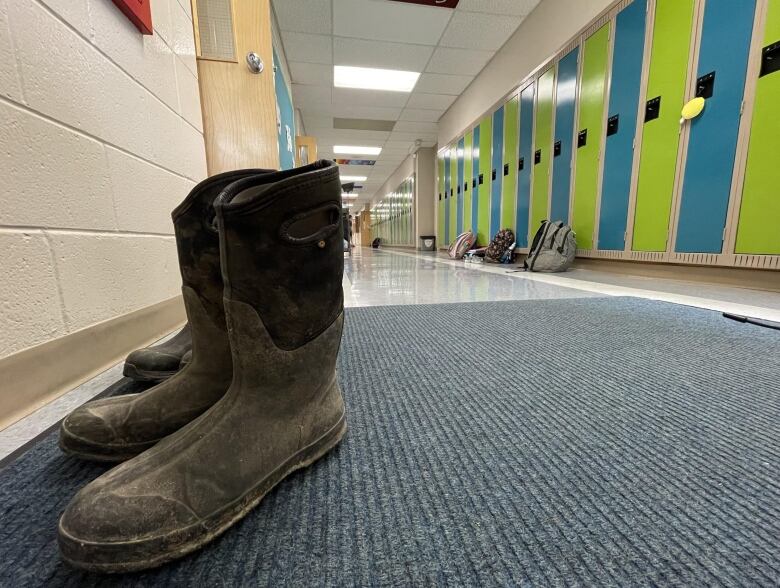
He says the COVID-19 pandemic has proven that people can live and work from anywhere, and that's when he pivots to say people should rethink rural Alberta as a place to raise their families and send their kids to school.
"Theconcept of how a village can raise a child, the closeness with school,and families, are all selling points, where I can actually see the movement of return to rural where families want to live in these situations and these type of communities and send their kids to these type of schools. So I think we have an extra an opportunity to shift that.
"I'm a minority voice on that. But I'm kind of proving it here," he said.
Bryan Labby is an enterprise reporter with CBC Calgary. If you have a good story idea or tip, you can reach him at bryan.labby@cbc.ca or on Twitter at @CBCBryan.













_(720p).jpg)


 OFFICIAL HD MUSIC VIDEO.jpg)
.jpg)



























































































